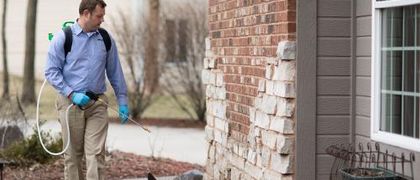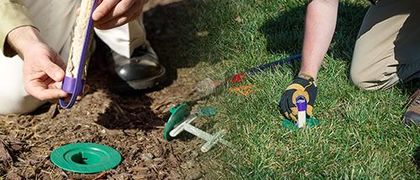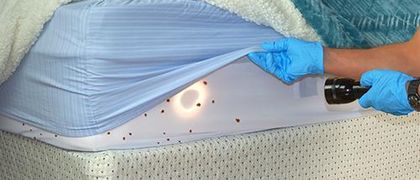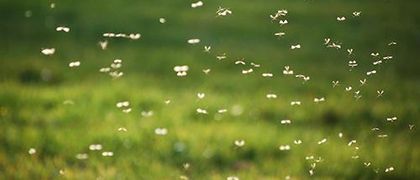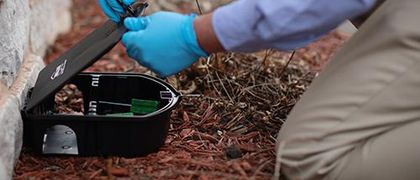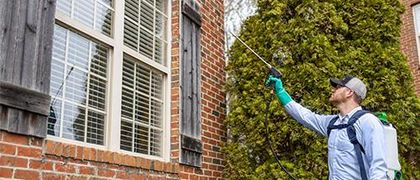What do field crickets look like?
- Size: 1/4 - 3/4 inch
- Color: Shiny black
- Body Structure: Stout body, long antennae, large "jumping" hind legs, spike-like ovipositor on female hind end
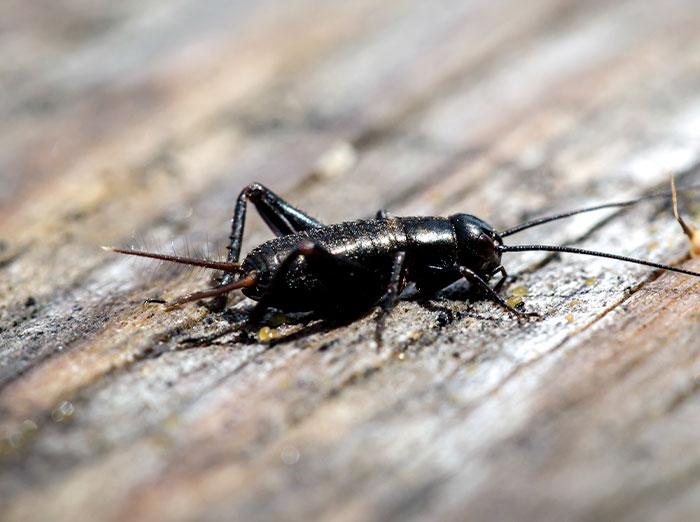
Characteristics of field crickets
Field cricket eggs spend the winter under soil, hatching in late spring or early summer. Field cricket nymphs develop into adults in about 90 days. Adult field crickets mate in late summer, lay eggs, and then die in the fall when the temperatures become too cold.
When are field crickets most active?
Where can you find field crickets?
Field crickets primarily live outdoors and can be found in lawns, fields, and flower beds as well as near compost piles and other damp areas.
Indoors, field crickets are frequently found in warm, moist areas such as bathrooms, kitchens, basements, and laundry rooms.
What do field crickets eat?
Field crickets are omnivores that will eat just about anything they find. This includes but is not limited to plant matter, insects, meat, leaves, and fruits.
Do field crickets bite?
Field crickets are capable of biting but rarely do so and their bites do not usually puncture human skin.
Are field crickets dangerous?
Field crickets are not considered a dangerous pest. Their chirping to find a mate and their proclivity to infest homes does make them a nuisance pest.
Why do I have a field cricket infestation?
As is the case with other types of crickets in the Midwest, field crickets often find their way inside homes by accident, especially during the summer months. Once inside, they'll seek out areas with plenty of moisture.
How do I get rid of field crickets?
If you've discovered field crickets in your home, contact Miller Pest & Termite for help getting rid of these nuisance pests. Our locally owned and operated pest control company offers effective pest control services in the Midwest that not only exterminate field crickets, but other house-infesting pests that are able to slip in. Reach out today to find out how we can help you solve your field cricket infestation.
How can I prevent a field cricket problem?
To prevent a centipede infestation in your home, our exterminators recommend implementing the following pest prevention tips:
- Seal cracks, gaps, and other holes in or around the foundation, siding, windows, and other potential openings
- Exterminate other insects in your home and around your property
- Clear away leaves, grass clippings, and other organic debris
- Address moisture issues inside the house
- Fix leaky pipes and other plumbing issues


Get Help Now!





